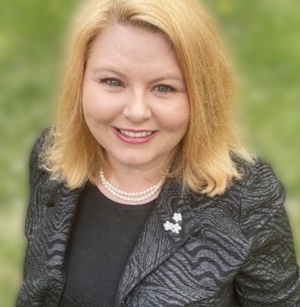Courtney Watson, PhD
Courtney Watson, Ph.D. is an Associate Professor of English at Radford University Carilion, in Roanoke, Virginia. Her areas of expertise include undergraduate and graduate curriculum development for writing courses in the health sciences and American literature with a focus on literary travel, tourism, and heritage economies. Her writing and academic scholarship has been widely published in places that include Studies in American Culture, Dialogue, and The Virginia Quarterly Review.
Her research on the integration of humanities into STEM education will be published by Routledge in an upcoming collection. Dr. Watson has also been nominated by the State Council for Higher Education of Virginia’s Outstanding Faculty Rising Star Award, and she is a past winner of the National Society of Arts & Letters Regional Short Story Prize, as well as institutional awards for scholarly research and excellence in teaching.
Throughout her career in higher education, Dr. Watson has served in faculty governance and administration as a frequent committee chair and program chair. As a higher education consultant, she has served as a subject matter expert, an evaluator, and a contributor to white papers exploring program development, enrollment research, and educational mergers and acquisitions.
In the News
-
“See It for Yourself”
in With Good Reason: Beyond the Book
July 22, 2022 -
“I Thought You’d Never Ask: Consent in Contemporary Romance”
in New Frontiers in Popular Romance (McFarland)
June 13, 2022 -
“All Aboard: Gaining STEAM in Health Sciences Education”
in Writing Steam (Routledge)
March 3, 2022
Marissa Ericson, PhD

Stay Connected
PhD in Clinical Neuroscience from University of Southern California
Associate Professor of Psychology, Criminal Forensic, and MFT departments
Principal statistician at University of California Irvine
Worked with hundreds of students to successfully defend dissertation and thesis projects
Over 60 courses taught on Dissertation, Academic writing, Research Methods, Statistics (all levels)
Psychology and Quantitative Specialist Dissertation Mentor
Marissa received her Ph.D. in Clinical Neuroscience from the University of Southern California and B.A. from Cornell University. Marissa is currently a Principal Statistician at University of California Irvine, as well as data scientist and research consultant at USC, Chapman University, and UCSB META lab. Marissa is also a Professor and Dissertation Chair at The Chicago School of Professional Psychology and California Lutheran University, teaching courses ranging from Dissertation, Academic writing, Cognitive Processes, Brain and Behavior, and Child and Adolescent Abnormal Psychology to Undergraduate and Graduate Statistics, Research Methods, and Psychology of Happiness.
Her research spans many psychological and physiological content areas. Her early research focused on the electrocortical, neuropsychological, and psychophysiological etiology of several psychopathologies, namely schizophrenia spectrum disorders (specifically schizotypal traits) and adolescent aggression and psychopathic traits, using a wide range of psychophysiological and brain-related modalities (EEG, ERPs, EKG, sEMG). She now focuses her research on well-being, positive psychological outcomes, resilience, and mindfulness-meditation interventions.
Marissa has been a subject matter expert in cognitive processes, human aggression, developmental psychology, and brain-bio-behavior. She has extensive experience with complex data sets, study design, and statistics of all levels. She has authored, co-authored, and provided statistical support for many peer-reviewed publications in the broad areas of psychology, neuroscience, and survey design.
Marissa’s highest goal is helping others to achieve their highest goals! She has served as dissertation chair and consulting with hundreds of students, editing chapters, analyzing data, and editing full dissertations. She has also served as a methodologist and statistician for doctoral and thesis students at several universities. She has worked with numerous students in psychology, neuroscience, PsyD, and MFT programs.
Perhaps her favorite aspect of the dissertation is to help students develop the entire project, starting with the research question. As a methodologist and statistician, she takes a bird’s eye view of the entire project, assessing and helping students to design the research plan/protocol and eventual statistical tests a student would need to complete. With a solid plan from the start, students are able to more efficiently and effectively achieve their goals!

